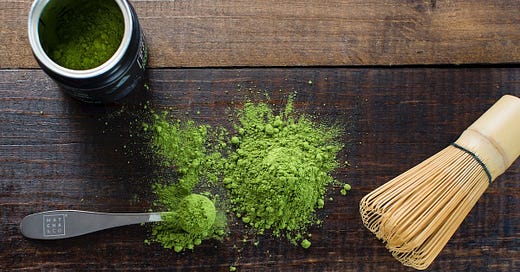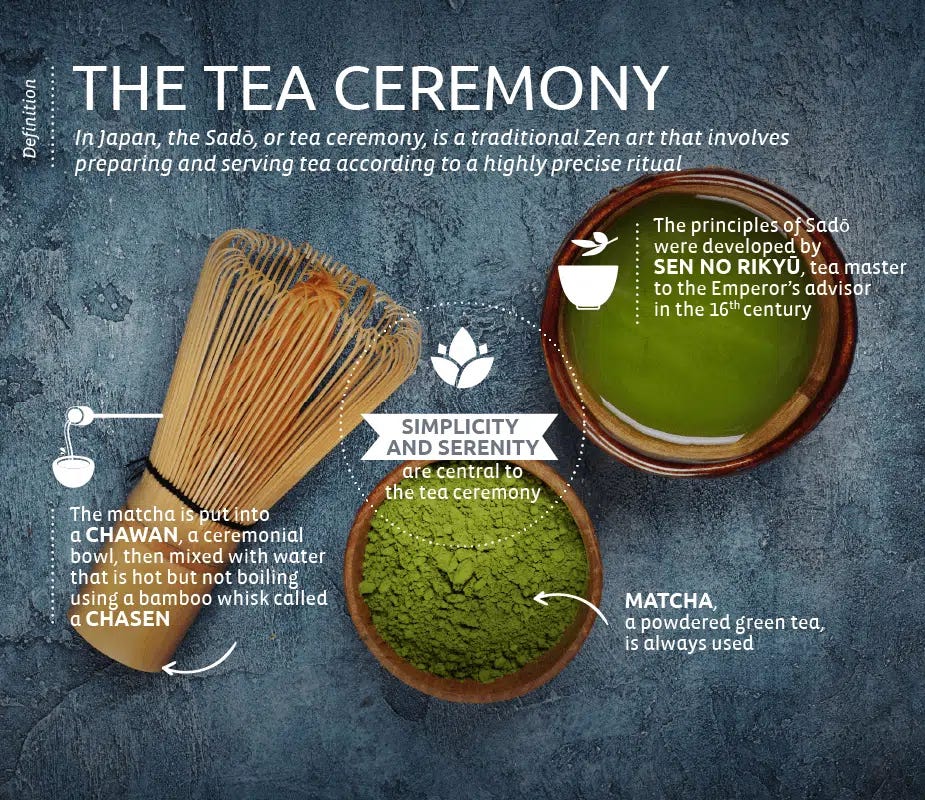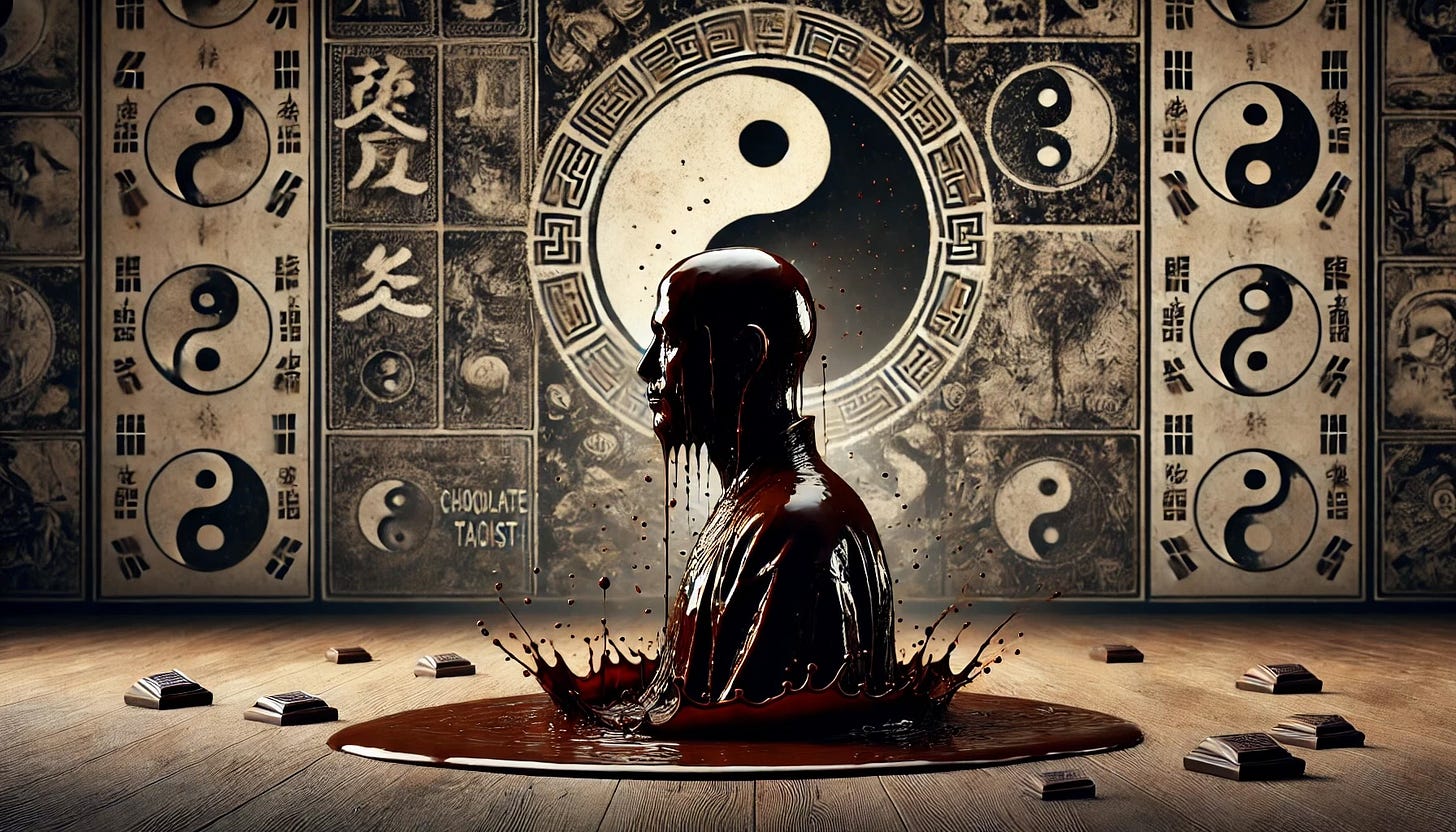Ancient Elixir, Modern Vibes
Unpacking the Mystique and Benefits of Matcha
For me, stepping into the world of matcha has felt like the holy grail of tea history, culture and health benefits
Imagine yourself in a tranquil Japanese tea room, the soft rustle of silk kimonos, and the serene ambiance created by the delicate art of the tea ceremony. You discover that matcha is not simply a drink but a journey that began centuries ago, promising to leave you invigorated and enlightened.
The Ancient Origins of Matcha
Your matcha adventure starts in ancient China, during the Tang Dynasty (618-907 AD). Here, tea leaves were meticulously steamed, dried, and ground into a fine powder known as "luo cha."
This powdered tea was cherished for its medicinal properties and soon became a staple among Chinese royalty and monks. But the story doesn't end there.
In 1191, a Japanese Buddhist monk named Eisai brought this powdered tea to Japan after studying in China. He introduced it to Japanese monks and samurai, who embraced matcha for its dual qualities: calming the mind and energizing the body.
As the centuries rolled on, matcha became deeply rooted in Japanese culture, particularly within the meditative practices of Zen Buddhism.
Matcha's Evolution in Japan
The Japanese didn’t just adopt matcha, they perfected it. The cultivation techniques evolved, focusing on shading the tea plants—a method known as "tencha"—to enhance the flavor and health benefits. This technique produced a tea with a smoother taste and a vibrant green hue that has become synonymous with high-quality matcha.
Regions like Uji in Kyoto became renowned for their superior matcha production. The careful process involves harvesting only the youngest, most tender leaves, which are then steamed, dried, and stone-ground into the fine powder you see today. Each step is a testament to centuries of refinement and dedication to excellence.
Matcha as a Health Elixir
Why should you consider integrating matcha into your daily routine? The benefits are as rich and diverse as its history. High in antioxidants, particularly catechins, matcha can help reduce blood pressure and dietary cholesterol.
Unlike other green teas, matcha contains a higher concentration of caffeine, which aids in improving memory and perception.
But it doesn't stop there. Matcha is known to alleviate stress and anxiety, thanks to its unique combination of caffeine and L-theanine, an amino acid that promotes relaxation without drowsiness.
There's even research suggesting that matcha has cancer-fighting properties, adding another layer of appeal to this vibrant green elixir.
Matcha’s Cultural Significance
Matcha is not only a health trend but a cultural phenomenon, one deeply intertwined with the Japanese tea ceremony. Introduced to Japan during the Tang Dynasty, matcha initially served religious purposes.
Over time, Zen monks, influenced by the meditative practices of their Chinese counterparts, began to develop what we now know as the Japanese tea ceremony.
This ritual, known as chanoyu or sado, is a highly choreographed practice that embodies core Zen principles such as simplicity, mindfulness, and appreciation for the fleeting nature of life.
During the 16th century, particularly in the Momoyama period, the tea ceremony's popularity soared among the aristocracy and samurai classes. Japanese tea masters refined the preparation and serving methods, transforming the ceremony into a profound spiritual practice.
Today, the tea ceremony remains a cornerstone of Japanese culture, promoting values like harmony, respect, purity, and tranquility.
Jade Leaf Matcha: A Modern Connection to Tradition
Fast forward to the present, and you’ll find Jade Leaf Matcha, a brand born from the Kizuna Tea Collective. With roots stretching back to 1858, Kizuna represents a network of family-run tea farms across Japan’s premier growing regions. These farms blend traditional techniques with modern practices, ensuring each harvest produces matcha that’s brimming with flavor and nutrients.
Jade Leaf Matcha embodies the spirit of connection—or "kizuna"—offering organic, high-quality matcha directly from trusted farmers. The brand’s mission is clear: to provide premium matcha at a fair price, breaking away from the overpriced luxury brands and the low-quality, mass-produced alternatives.
This commitment to quality and authenticity makes Jade Leaf Matcha a perfect choice for anyone looking to experience the true essence of matcha.
As you sip your matcha, you’re not just enjoying a beverage; you’re partaking in a tradition that spans over a thousand years. The rich history, the meticulous cultivation, and the profound cultural significance all contribute to the unique experience that is matcha.
So, why not take a moment to explore this vibrant green tea? Let it energize your mornings, calm your afternoons, and connect you to a tradition that’s as deep as it is enriching.
Unleash the Syrup: Become a Member of The Chocolate Taoist™ Tribe
Since 2022, The Chocolate Taoist has delivered uncommon nomadic wisdom to help you live a more interconnected and expansive life.
If this publication has been a source of wisdom for you then please consider helping me sustain it by becoming a monthly or annual contributor.
For just $6.00/month or $60.00/year, you’ll have the opportunity to share your lived experiences with fellow nomads, fueling fiery discussions that provoke, inspire, and challenge you to think differently.
So I hope you will take the plunge today and contribute to my mission of helping human travelers on this life journey.
Onward and Forward
Diamond Michael Scott aka The Chocolate Taoist







Love matcha! Suddenly wondering why I have not attempted a matcha kombucha yet?
I love matcha.